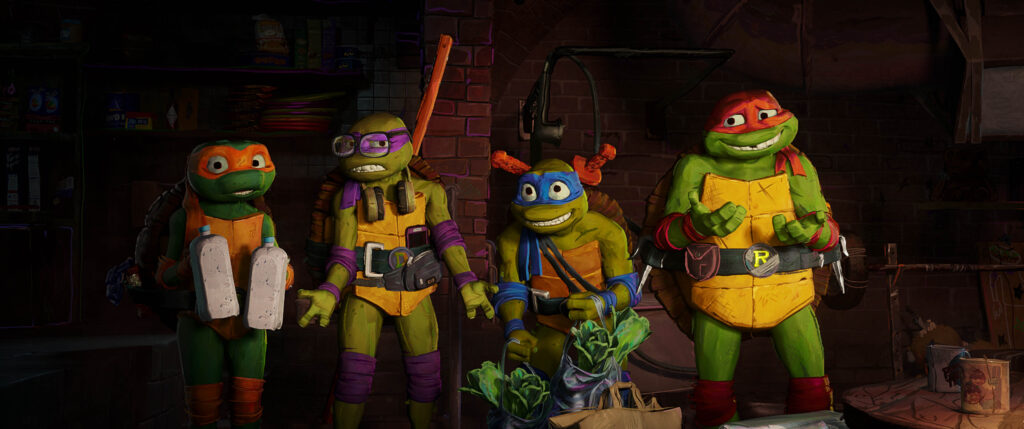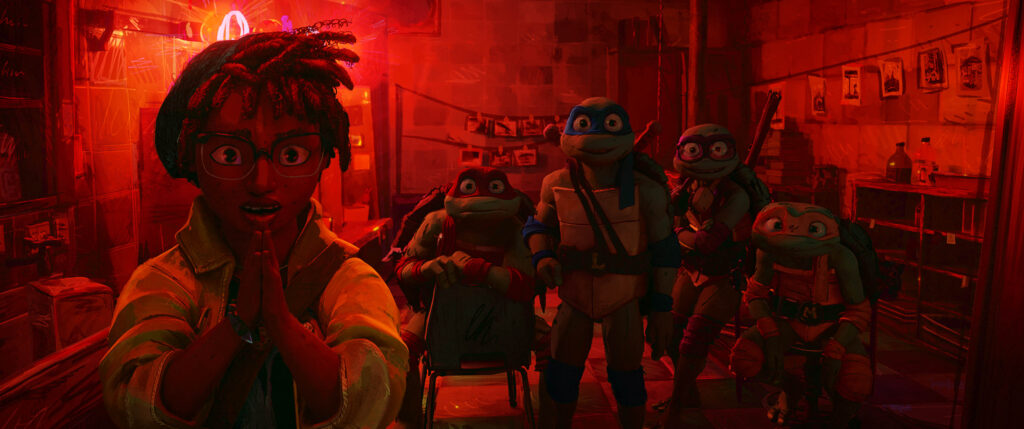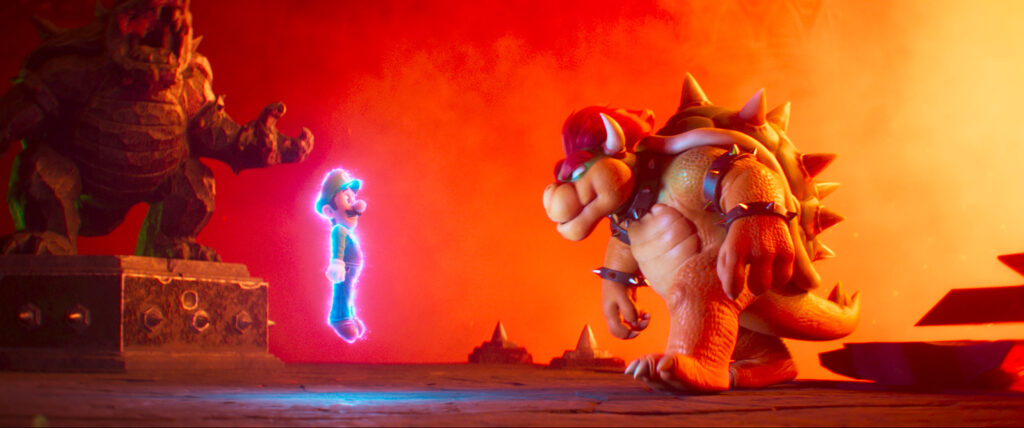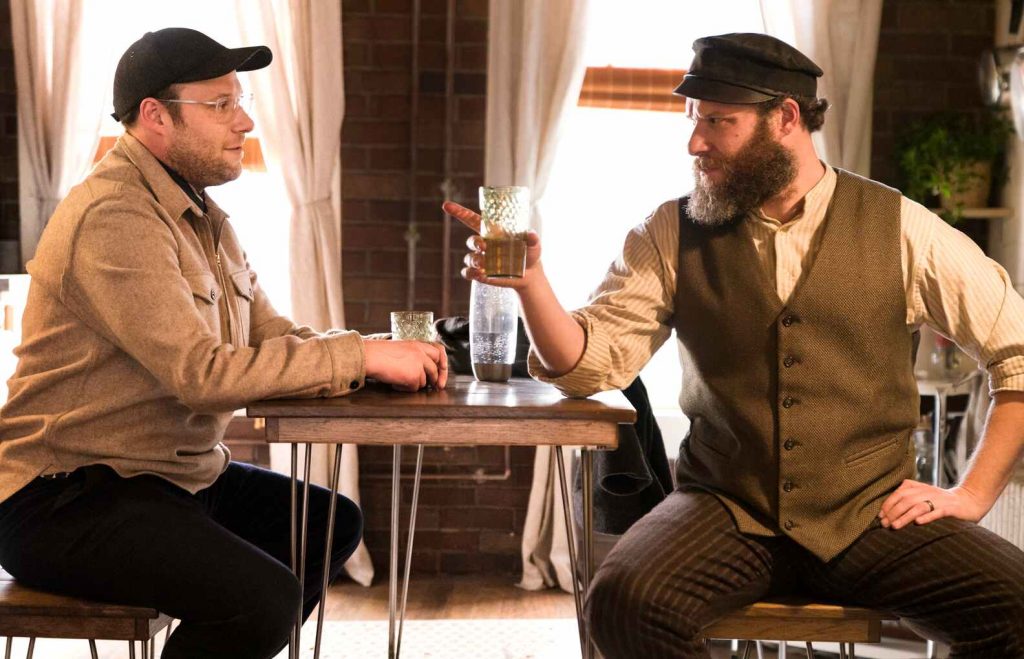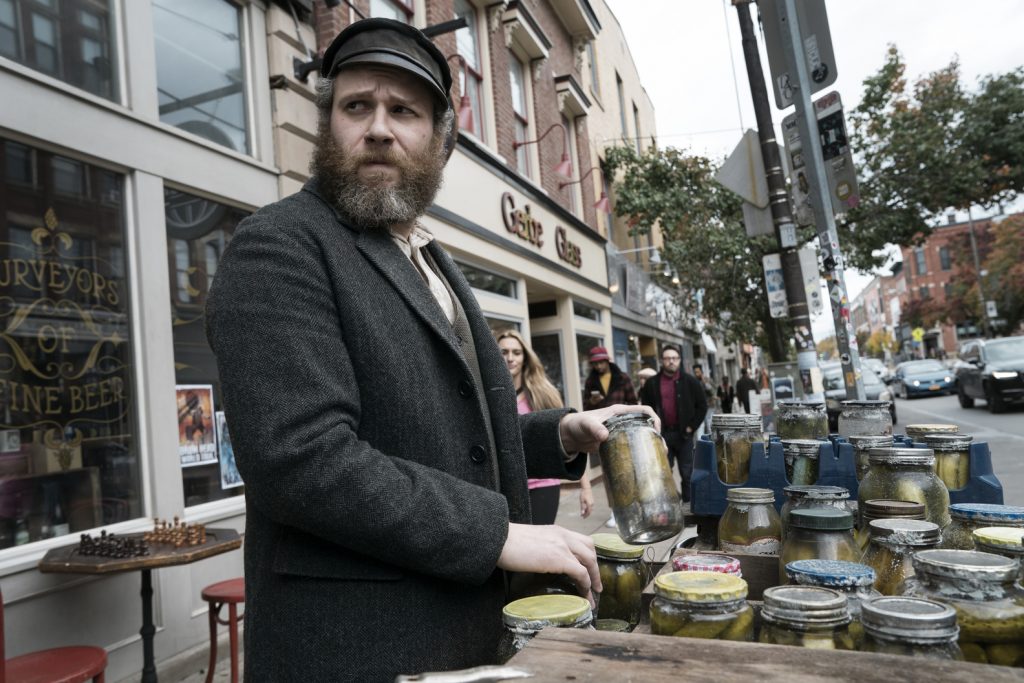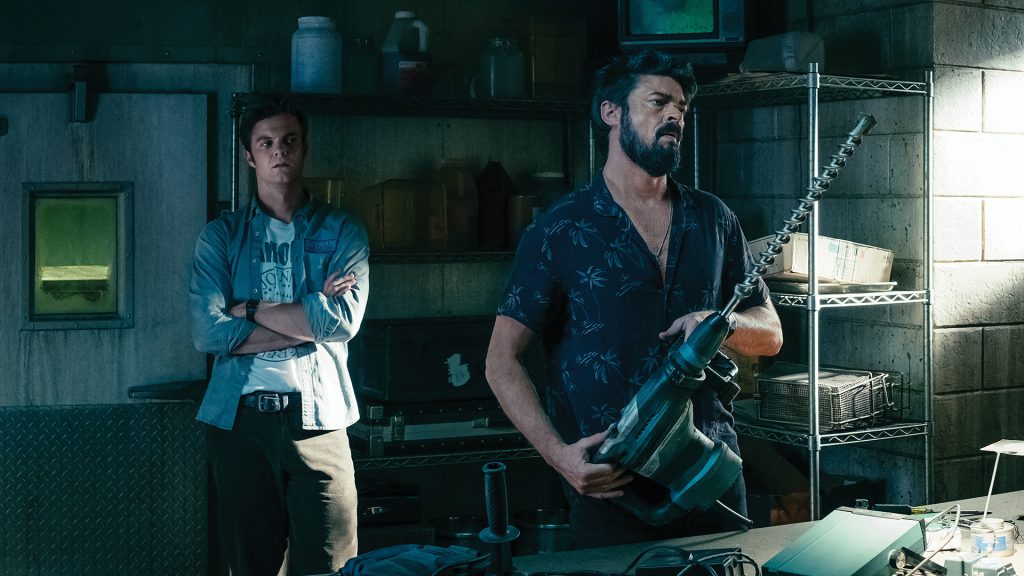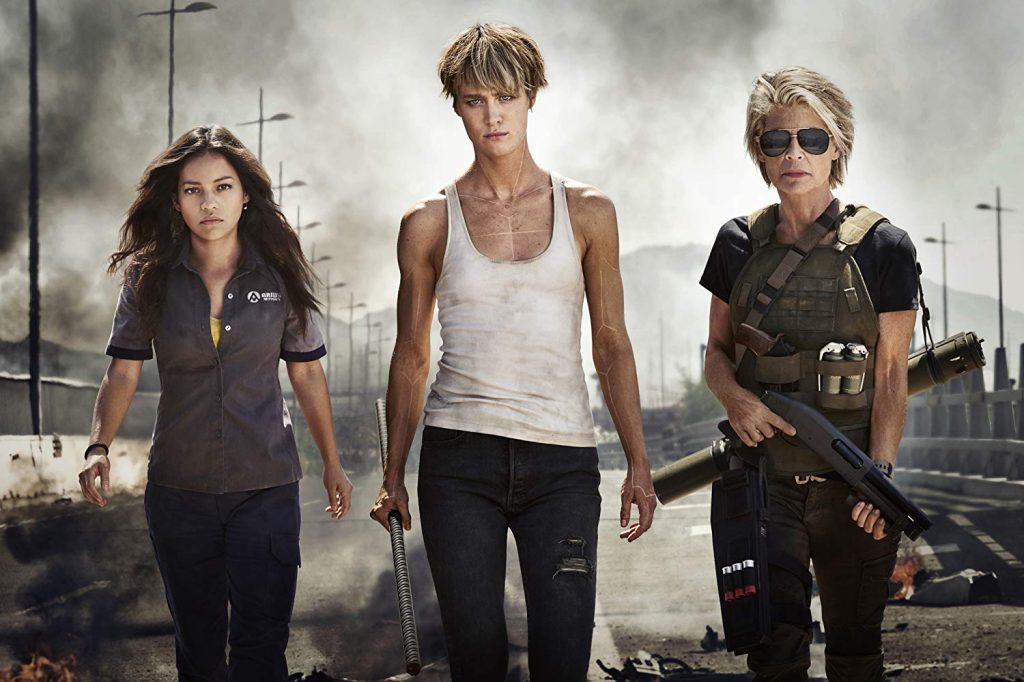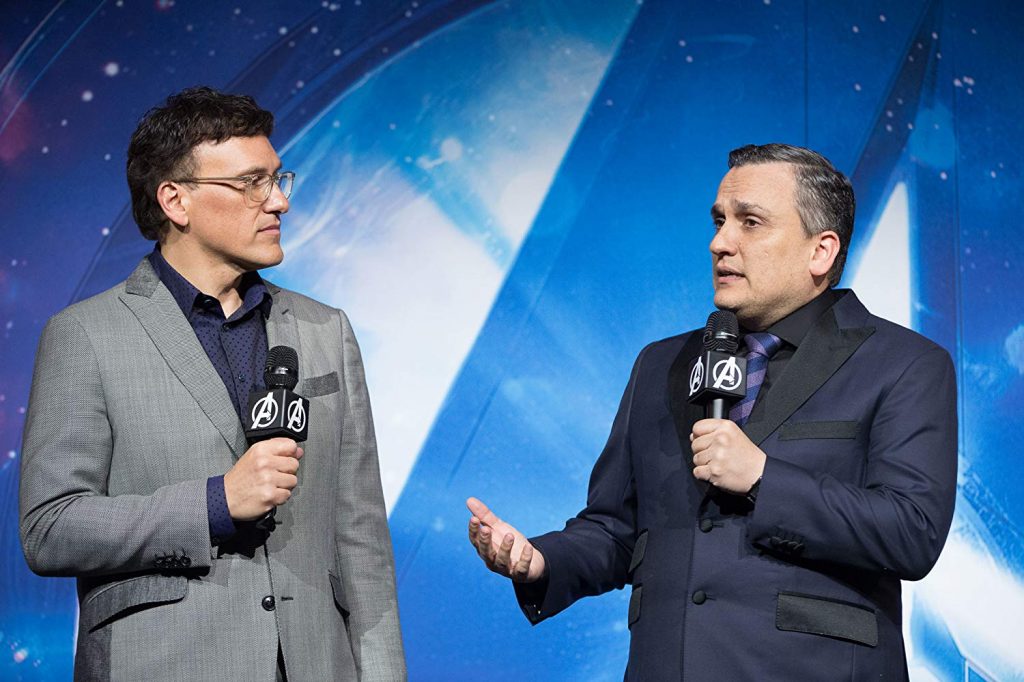September 9, 2023
by Carla Hay
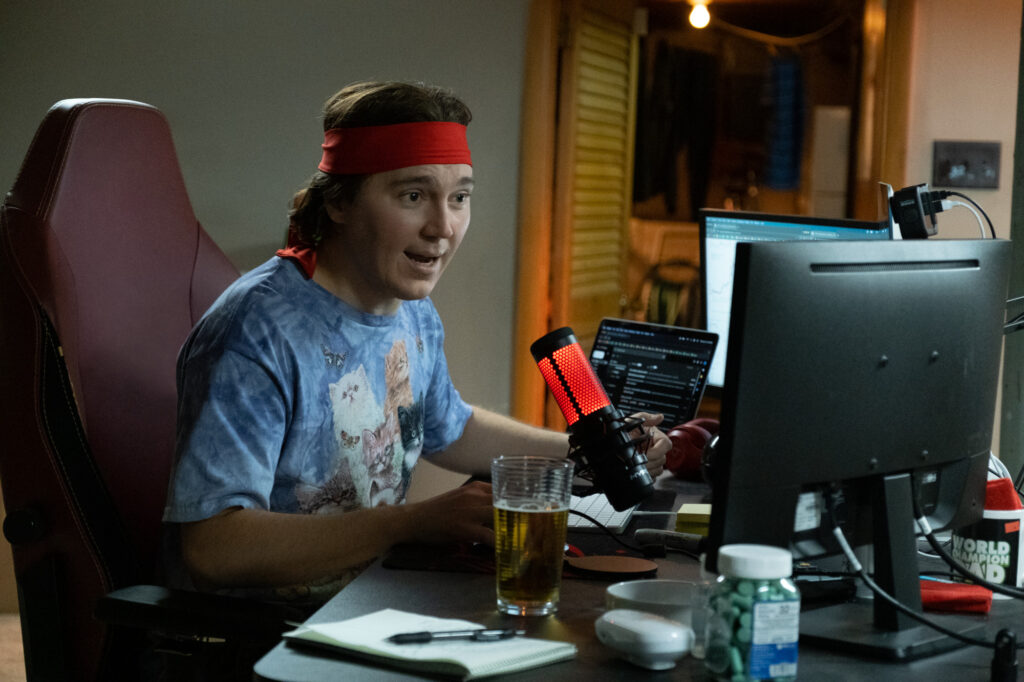
Directed by Craig Gillespie
Culture Representation: Taking place in various parts of the United States, from 2020 to 2021, the comedy/drama film “Dumb Money” (based on true events) features a predominantly white cast of characters (with some African Americans, Latinos and Asians) representing the working-class and middle-class.
Culture Clash: Keith Gill, an insurance analyst and amateur stock-market adviser, becomes an Internet sensation with a cult-like following under his online alias Roaring Kitty, when he becomes a passionate advocate of buying stocks in the video game retail company GameStop, leading to a massive upheaval in the billionaire-owned hedge funds that want GameStop to fail.
Culture Audience: “Dumb Money” will appeal primarily to people who are fans of the movie’s headliners and stories about financial underdogs who take on corporate giants.

The slick comedy/drama “Dumb Money” takes a little too long to get to the best parts of this story of financial underdogs versus billionaire corporate bullies, but it’s still a mostly entertaining ride with a talented cast. Some of the characters are very underdeveloped, while other characters are unnecessary distractions. People who are interested in finance and computer technology will enjoy and understand “Dumb Money” the most. “Dumb Money” might get compared to 2015’s “The Big Short” and 2010’s “The Social Network,” but “Dumb Money” isn’t as outstanding as those two Oscar-winning films.
Directed by Craig Gillespie, “Dumb Money” had its world premiere at the 2023 Toronto International Film Festival. This “Dumb Money” feature film is not to be confused with filmmaker Ryan Garry’s 2021 short narrative film “Dumb Money,” which is based on the same subject matter of the GameStop stock phenomenon that disrupted Wall Street’s stock market. From 2021 to 2023, there have been at least seven documentaries about the same subject. The “Dumb Money” short film has an entirely different cast and crew from the “Dumb Money” feature film. Gillespie (the director of 2017’s “I, Tonya” and an executive producer/director of 2022’s “Pam & Tommy” miniseries) has a style that blends intense drama and satirical comedy, even when based on true stories.
The “Dumb Money” feature film’s screenplay—which was co-written by former Wall Street Journal reporters Lauren Schuker Blum and Rebecca Angelo—is based on Ben Mezrich’s 2021 non-fiction book “The Anti-Social Network: The GameStop Short Squeeze and the Ragtag Group of Amateur Traders That Brought Wall Street to Its Knees.” Mezrich also wrote the 2009 non-fiction book “The Accidental Billionaires: The Founding of Facebook, a Tale of Sex, Money, Genius, and Betrayal,” which was adapted into Aaron Sorkin’s Oscar-winning screenplay for “The Social Network.” Identical twin brothers Cameron Winklevoss and Tyler Winklevoss, who famously sued Facebook to get more of Facebook’s profits (as depicted in director David Fincher’s “The Social Network”), are two of the executive producers of the “Dumb Money” feature film.
If “The Social Network” and filmmaker Adam McKay’s “The Big Short” are mentioned in comparison to “Dumb Money,” that’s because “Dumb Money” has many similarities in how it approaches a complex story of financial wheeling and dealing with many players on different levels. The overarching theme of all three of these movies is that greedy corporate types are villains who don’t hesitate to crush the hopes, dreams and finances of “underdogs” who dare to challenge them. The title of “Dumb Money” comes from the term that arrogant rich people in the financial sector use for non-wealthy people who invest in the stock market. A more polite term used for non-wealthy investors are “retail investors.”
The “Dumb Money” feature film is based on the true story of a phenomenon that happened from 2020 to 2021, when the video game retailer GameStop suddenly went from being on the verge of going out of business to became a red-hot stock investment, because of a surge of working-class and middle-class people who decided to invest in GameStop stock. This massive interest in GameStop stock was based largely on the advice of an Internet media personality using the alias Roaring Kitty. It also caused a panic among wealthy Wall Street investors who did not know how to handle this unexpected grassroots movement.
In real life, Roaring Kitty was a middle-class, self-described computer geek in his 30s named Paul Gill (played by Paul Dano), whose day job at the time was working as an analyst/financial educator for insurance corporation MassMutual. He did his stock-market videos and Internet chatting on his own time at his home. Because of the unexpected success of GameStop stock, many billionaire-owned hedge funds that were betting on GameStop stock to fail (a practice known as “shorting” or “short-selling” a stock) experienced financial meltdowns. “Dumb Money” is an occasionally convoluted play-by-play of what happened during this stock-market war that led to a U.S. Congressional hearing and federal investigations.
The movie’s principal characters have the same names as the real people, while some of the supporting characters are fabricated and are partially based on real people. (For the purposes of this review, the real people will be referred to by their last names, while the characters in the movie will be referred to by their first names.) Many of Gill’s real-life quirks are also portrayed in the movie. He liked to wear headbands (especially a red hedband) and T-shirts with kittens on the front of the shirts.
In the “Dumb Money” feature film, Keith is living in Brockton, Massachusetts, with his supportive wife Caroline Gill (played by Shailene Woodley) and their infant daughter (played by Leyla Eden and Mason Eden), who doesn’t have a name in the movie. (“Dumb Money” was actually filmed in New Jersey.) Keith has invested the couple’s entire life savings ($33,000) in GameStop. Most people who know about this investment think that Keith has made a reckless and foolish decision. Caroline is skeptical and nervous about the decision. But ultimately, she stands by Keith’s firm belief that GameStop investing could make them enough money, possibly millions of dollars, for them to retire early.
The movie shows that Keith’s online persona as Roaring Kitty (which he used on online platforms such as YouTube and on a Reddit subforum called WallStreetBets) didn’t start out being popular. In the beginning he had a very small audience, many of whom ridiculed him. However, his enthusiasm for GameStop was infectious. Over time, his following grew to thousands of enthusiastic fans who eagerly listened to Keith’s stock-market advice. In order to legally protect himself, Keith had disclaimers about how he was not a licensed stock broker, and his information about GameStop was for entertainment purposes only.
Keith’s other immediate family members, who all live nearby, are mother Elaine Gill (played by Kate Burton), a retired registered nurse; father Steve Gill (played by Clancy Brown), a retired truck driver; and Keith’s younger brother Kevin (played by Pete Davdison), a stoner who has trouble holding on to a steady job. In the movie, Kevin is working in a low-paying job as a food delivery person and is living with his parents. Kevin’s only purpose in the movie is to be comic relief, since he’s not involved in any of Keith’s stock-market shenanigans. Keith’s parents don’t find out about what Keith is doing in the stock market until he tells them some big news.
The Gill family is grieving over the death of Elaine’s and Steve’s other child: Sarah Elizabeth Gill, who died of COVID-19 in 2020, at the age of 43. Keith doesn’t like to talk about Sarah’s death, but there are a few scenes in the movie that show how her death has had a profound effect on him. It’s implied that Keith’s grief over his sister’s death is the fuel behind Keith’s willingness to risk his entire fortune and reputation on GameStop stock. Many people who experience the loss of a loved one often react with extreme “you only live once” decisions.
And because the movie’s story takes place during the height of the COVD-19 pandemic, there are several verbal and non-verbal references to the pandemic in “Dumb Money.” Observant viewers will notice that in the movie, the characters who tend to wear COVID-19 masks are either required to wear the masks as part of their jobs or are in precarious financial situations where they can’t afford to miss out on work if they get infected with COVID-19. There’s also an underlying implication that people being in COVID-19 quarantines or lockdowns resulted in more people spending time at home online, which might be one of the plausible reasons why the GameStop stock phenomenon happened so quickly.
“Dumb Money” opens with a scene taking place in 2020, showing one of the “villains” of the story panicking because he sees that GameStop stock is on the rise. Gabe Plotkin (played by Seth Rogen), the CEO of hedge fund Melvin Capital, is at his mansion in California, when he calls his fellow billionaire crony Ken Griffin (played by Nick Offerman), who’s relaxing at a Four Seasons Resort in Florida. During the conversation, Gabe tries not to show how frightened he is by this upward trend in GameStop stock, while he puts on a front in assuring Ken that Gabe has everything under control. Gabe wants to get Ken’s reaction to the rise in GameStop stock value. Ken doesn’t seem too worried at all. Viewers will later find out why.
The movie then does a flashback to three months earlier, when GameStop’s stock was valued at only $3.85 per share. Keith is shown doing his Roaring Kitty activities on the Internet, while other characters are introduced as eventual followers of Keith/Roaring Kitty. Every time a stock market player is shown on camera, the movie has a caption next to that person’s head that shows the person’s net worth at the time they are shown on screen. All of Keith’s followers who are depicted in “Dumb Money” are fictional versions of real people and are portrayed as having financial struggles before investing in GameStop.
In the city of Pittbsurgh, Jenny (played by America Ferrera) is a divorced mother of two sons, who look like they’re about 8 to 10 years old. It’s briefly mentioned in the movie that Jenny’s ex-husband abandoned the family. Jenny is financially broke (when she’s first seen in the movie, her net worth is a deficit of more than $5,000) and works as a nurse at Pittsburgh Presbyterian Hospital. She becomes obsessed with Roaring Kitty’s videos, and eventually invests in GameStop. Jenny gets repeated warnings and admonishments from her sassy, openly gay best friend/co-worker Chris (played by Larry Owens), who thinks she’s making a big mistake with this investment. Chris frequently advises Jenny to sell all of her GameStop stock.
In the city of Detroit, Marcos Garcia (played by Anthony Ramos) is a low-paid and under-appreciated cashier at a GameStop store. Marcos is also financially broke. His net worth is only $136 when he’s first seen in the story, and he’s denied a request to get an advance on his next paycheck. Marcos’ boss Brad (played by Dane DeHaan) treats Marcos in a condescending and dismissive manner, especially after he finds out that Marcos has invested in GameStop.
At the University of Texas in Austin, two students meet during a drinking game at a party and eventually become lovers. Their names are Harmony Williams (played by Talia Ryder) and Riri (played by Myha’la Herrold), whose sexual chemistry with each other can be seen as soon as Riri is told to put her hand down Harmony’s pants because of a dare during the drinking game. During this first conversation, Harmony tells Riri that she’s thinking about investing in GameStop stock because Harmony has become a fan of Roaring Kitty. Eventually, Harmony and Riri (who each has thousands of dollars in student-loan debt) invest their money in GameStop stock. Harmony has a scowling, unnamed roommate (played by Andrea Simons), whose annoyance with this romance is used as an occasional joke in the movie.
All of these financial underdogs express various levels of anger and motivation to fight back against what they believe to be a rigged stock market that was designed to make the rich get richer, and non-wealthy people to be at a disadvantage. After Harmony and Riri become intimate partners, Harmony tells Riri that her father used to be the general manager of a Costco-like retailer called Shopco, but he lost his job, his pension and much of his life savings. Harmony says it’s because he was a victim of a corporate raiding firm that bought Shopco to purposely bankrupt the company, in order to benefit the people who were short-selling Shopco stock.
Real-life billionaire investor Steve Cohen (played by Vincent D’Onofrio) is another player in the GameStop stock-market war depicted in “Dumb Money,” although this character is shown intermittently and doesn’t get nearly as much screen time as billionaires Gabe and Ken. Gabe is portayed as a tone-deaf partier who likes to spend lavishly and doesn’t really think about all the lives he’s ruining by short-selling stock. Ken is depicted as a cold manipulator who is very much aware of the lives he’s ruining, but he just doesn’t care.
And in this billionaire clique, it’s very much portrayed as a “boys’ club.” The only woman connected to this clique who has a significant speaking role (and it’s still a small role) is Gabe’s wife Yaara Plotkin (played by Olivia Thirlby), a “trophy wife” type. The only purpose she’s given in this movie is to worry about whether or not Gabe is making enough money so that she can maintain the lifestyle to which she has become accustomed. There are no female stockbrokers or female hedge fund leaders who are depicted as characters in this movie.
Two other characters who have pivotal roles in the GameStop stock-market war are the co-founders of the Robinhood app: Vlad Tenev (played by Sebastian Stan) and Baiju Bhatt (played by Rushi Kota), who marketed Robinhood as an app where ordinary people could buy and sell stocks for free. In the movie, Robinhood users include Jenny, Marcos, Harmony and Riri. Vlad and Baiji, who are both in their 30s, are “tech bro” stereotypes of being arrogant big talkers of start-up companies. Vlad is portrayed as the more corrupt person in this greedy and ambitious duo.
The first half of “Dumb Money” clips along at a fairly uneven pace where characters are quickly introduced, and then the movie slows down to show aspects of each character’s personal lives. “Dumb Money’ spends way too much time on Kevin, who didn’t need as much screen time as he gets, considering he had no part in the GameStop stock war. Keith was a star track runner in high school, so “Dumb Money” has multiple scenes of Keith jogging on a residential street or running on a local school’s track (sometimes with Kevin) as a way to relieve stress.
The second half of the movie is an improvement, as it gets into the conflicts created during the GameStop stock war. Still, there might be some “Dumb Money” viewers who will feel disconnected because of the movie’s first half, which can be perceived as a blur of people talking stock market jargon and Internet slang. If you’re the type of person who could care less about the intersections of technology and commerce, and if you will probably never read a Wall Street Journal article or Reddit forum in your life, then “Dumb Money” is not the movie for you.
Dano is an actor who can be counted on to deliver top-notch performances in his projects. He has made a career out of doing characters who are eccentric outsiders, so he’s not doing anything that’s very new or groundbreaking in “Dumb Money.” Still, Dano’s portrayal of Keith holds this movie together, when some scenes tend to be a little pointless (for example, there’s a scene where Jenny somewhat flirts with a guy she meets at a gas station) or completely unnecessary (any scene that shows what Kevin does when he’s not with Keith). The character of Caroline isn’t given much to do but be a stereotypical “worried wife” character.
For all of its flaws, “Dumb Money” still has enough that’s enjoyable to watch, regardless of how much viewers know about what happened in real life. A lot of the credit should go to the “Dumb Money” cast members, who admirably do as much as they can with the dialogue that they have, even if some of their characters are very underwritten. Toward the end of the movie, before the inevitable epilogue with updates of what happened in real life, there’s some archival footage of the real-life people who were involved in this stock-market war. Some of what they said was recreated in “Dumb Money,” which might be a based on a true story, but it’s not immersive enough to make you forget that you’re watching actors saying scripted lines on screen.
Columbia Pictures will release “Dumb Money” in select U.S. cinemas on September 15, 2023, with an expansion to more U.S. cinemas on September 22, 2023, and September 29, 2023.

